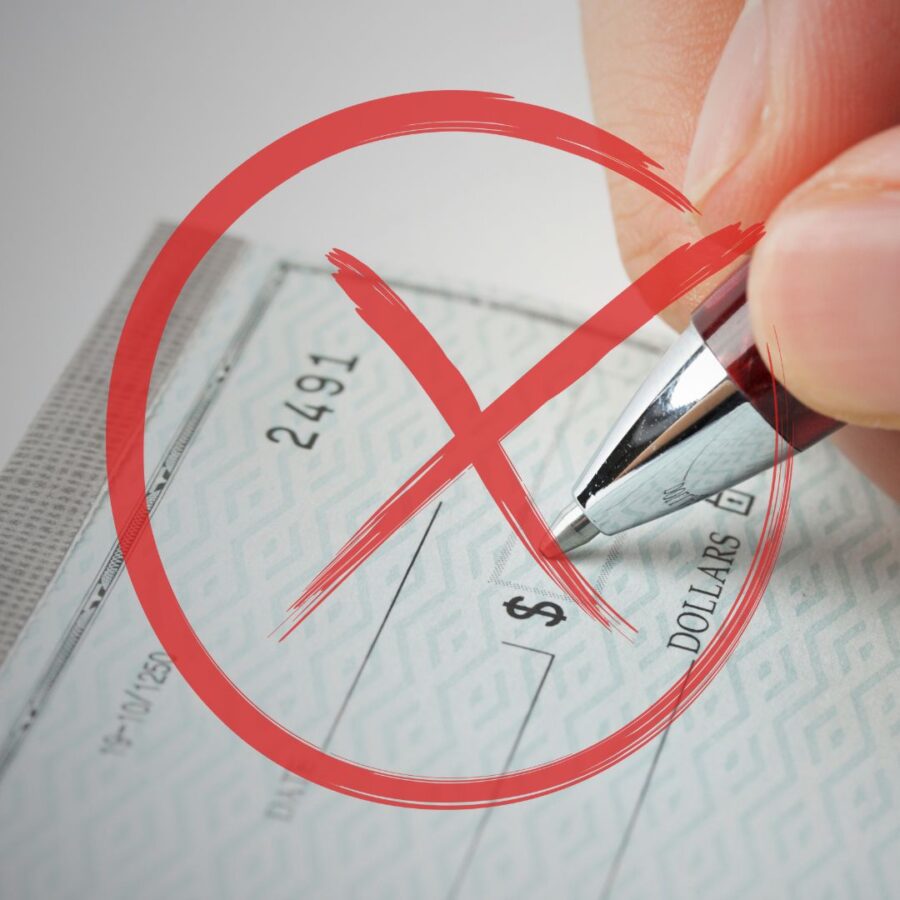Starting October 1, 2025, the IRS will begin phasing out paper checks for individual taxpayers; this applies to both issuing and accepting payments. This change is part of a nationwide effort to modernize payments, reduce fraud, cut costs, and speed up how money moves.
Whether it’s receiving a tax refund, making tax deposits, or handling reimbursements, all financial transactions with federal agencies will soon need to be conducted electronically. A very small group of people, such as those in extremely remote areas or individuals over age 90, may qualify for exemptions. But for nearly everyone else, action is required.
To Do ASAP: Update Your Payment Methods and How You’ll Receive Funds
For most dental practices, the biggest adjustment will be moving from paper-based transactions to electronic payments only. Agencies like the IRS, Medicare/Medicaid, and the Small Business Administration are phasing out checks in favor of direct deposits, debit cards, or online portals.
If your practice still receives payments by check, or if you send checks to federal agencies, you’ll need to transition to electronic systems. Here’s what that looks like:
- IRS refunds: Direct Deposit
- Tax payments: IRS Direct Pay or EFTPS
- Federal grants or SBA loans: Agency-specific online portals
Action Steps for Dentists
-
- Set up an individual ID.me account with the IRS (for you and your spouse).
-
- Confirm your banking information. Make sure your bank account is accurate and able to accept electronic transfers.
-
- Check with agencies you work with. Ask how they will distribute funds after September 30, 2025, and confirm you’re set up correctly. Engage Advisors is happy to ensure you’re properly set up to receive any refunds as a direct deposit to your bank account, and to ensure any tax payments are set up for automatic withdrawal from your bank account on the respective due dates.
-
- Learn the IRS tools. Get comfortable using Direct Pay and EFTPS now so you don’t face delays later.
- Learn the IRS tools. Get comfortable using Direct Pay and EFTPS now so you don’t face delays later.
Stay Alert for Scams
Whenever policies change, scams spike. Criminals may pose as government officials, asking you to “update your account” or “provide bank details” to keep receiving payments.
Here’s how to stay safe:
- The IRS and federal agencies will never request sensitive information by phone, text, or email.
- Official websites always end in “.gov.” Bookmark the sites you use and only update payment information there.
- Train staff who manage finances to spot red flags like urgent requests for banking details, suspicious links, or emails that don’t look official.
Look On the Bright Side
The move away from paper checks may feel inconvenient, but it actually makes your practice’s finances more stable. Electronic payments mean:
- Faster access to funds. No waiting on the mail or for checks to clear.
- Better security. Digital payments are harder to lose or tamper with.
- Predictable cash flow. Direct deposits and electronic tax payments help you plan around payroll, overhead, and reimbursements.
- Lower compliance risk. With electronic deadlines, you’re less likely to face penalties tied to mail delays or lost checks.
For practice owners, this reliability helps create stronger financial planning, which is especially important when overhead is high and margins are tight.
Final Thoughts
The end of paper checks is a big change, but it also brings real benefits: faster payments, stronger security, and steadier cash flow. Take time now to review your processes, confirm your bank details, and make sure your team knows how to handle electronic payments safely.
Need help preparing your practice? Engage Advisors can guide you through updating payment systems, protecting your cash flow, and keeping your practice compliant with the new federal rules.

